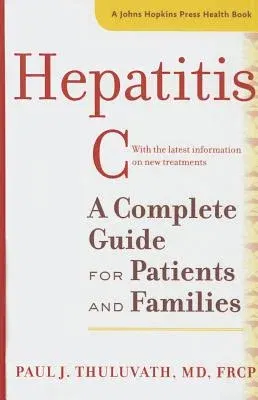Vital and hopeful information for people suffering from hepatitis C,
an often chronic--and sometimes deadly--disease of the liver.
The liver is the body's workhorse. It makes proteins and bile, processes
fats, and detoxifies drugs and alcohol. The liver is a resilient organ,
but it is susceptible to damage from a number of sources, including
viral infections. Such infections cause inflammation of the liver,
called hepatitis. This book is a comprehensive guide to hepatitis C,
which affects about 3 percent of the world's population--3 to 4 million
people in the United States alone. Some people with acute hepatitis C
infection will be cured without any treatment, but when hepatitis C
becomes chronic it may cause cirrhosis, liver cancer, and death.
Hepatitis C is transmitted from an infected person to an uninfected
person by sharing drug-injecting equipment, snorting cocaine, having
sex, or getting a blood transfusion or organ transplant. It can be
spread by getting a tattoo with unsterile equipment. In rare cases,
women with hepatitis C transmit the virus to their infants.
World-renowned gastroenterologist and liver specialist Dr. Paul J.
Thuluvath provides detailed information about the disease and its
diagnosis and management, including dramatically improved treatments
that have recently emerged. Dr. Thuluvath answers common and uncommon
questions about hepatitis C and liver disease, including
How is hepatitis C spread?
Who should be tested--and what tests diagnose hepatitis C and other
liver diseases?
What are the symptoms of acute liver disease?
What are the symptoms and complications of chronic liver disease?
What are the complications of cirrhosis (scarring of the liver)?
How does hepatitis C affect other organs in the body?
What treatment options are available, and what side effects might they
have?
How is early liver cancer diagnosed and treated?
When is liver transplantation needed, and how does it work?
Dr. Thuluvath provides the latest information on new interferon-free
regimens, which have shown a cure rate of more than 90% in people with
specific genotypes--and which avoid the distressing side effects of
interferon therapy. He discusses hepatitis C in children as well as
complementary and alternative medicine. Published while revolutionary
changes are taking place in the treatment of hepatitis C, this
authoritative guide will become the preferred reference for people with
hepatitis C and their families.

